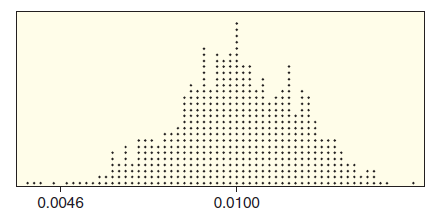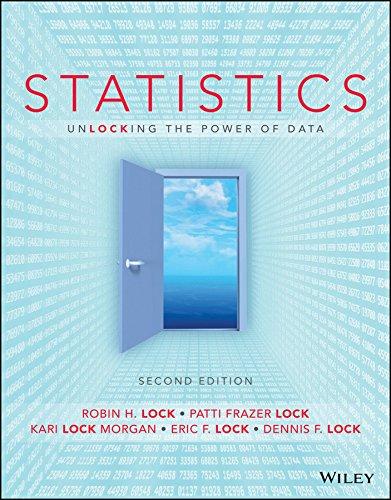A colonoscopy is a screening test for colon cancer, recommended as a routine test for adults over
Question:
(a) What are the null and alternative hypotheses?
(b) What is the sample proportion?
(c) Figure 4.19 shows a randomization distribution for this test. Use the fact that there are 1000 dots in the distribution to find the p-value. Explain your reasoning.

(d) Does the p-value appear to show significant evidence that colonoscopies save lives?
DistributionThe word "distribution" has several meanings in the financial world, most of them pertaining to the payment of assets from a fund, account, or individual security to an investor or beneficiary. Retirement account distributions are among the most...
Fantastic news! We've Found the answer you've been seeking!
Step by Step Answer:
Related Book For 

Statistics, Enhanced Unlocking The Power Of Data
ISBN: 9781119308843
2nd Edition
Authors: Robin H Lock, Patti Frazer Lock, Kari Lock Morgan, Eric F Lock, Dennis F Lock
Question Posted:





